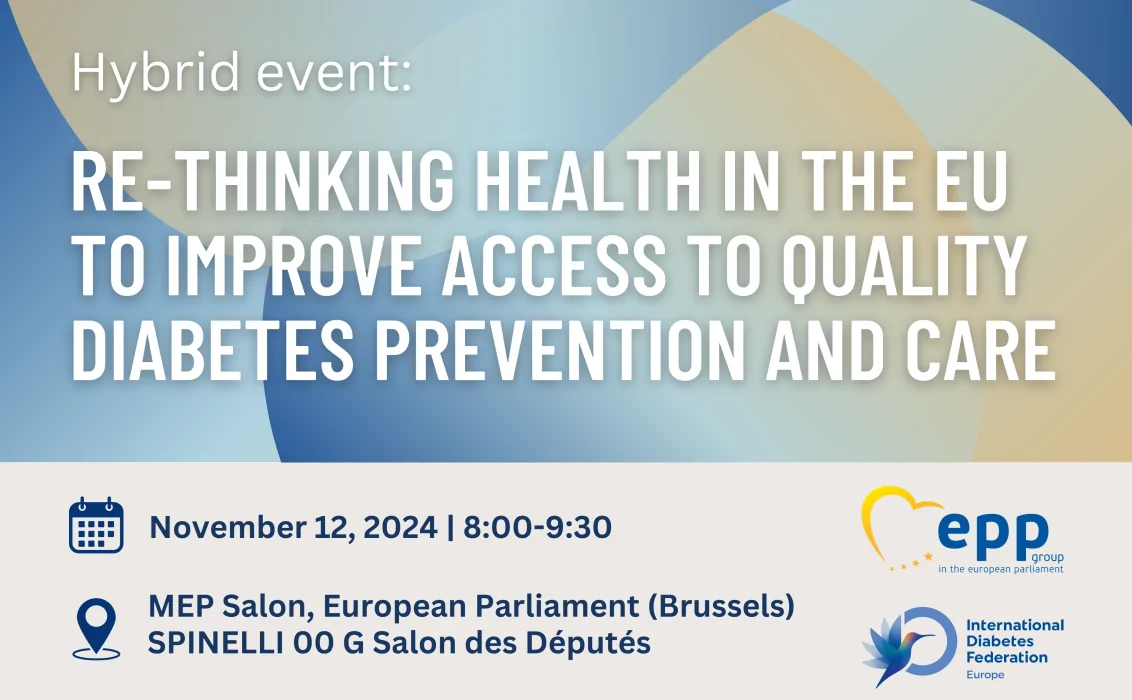France took on the Presidency of the Council of the EU on January 1, 2022. Health is a major focus area of France’s six-month agenda. Some of the Presidency’s health priorities include the promotion of digital health and the strengthening of responses to health emergencies and cross-border threats. Another important focus of action will be the promotion of the EU’s industrial strategy, with a view to reinforcing the Union’s health sovereignty and fostering innovation as well as stepping up efforts on the prevention and management of cancer, antimicrobial resistance, and addressing the mental health needs of vulnerable young people.
The COVID-19 pandemic brought health to the forefront of everyone’s mind and prompted an unprecedented move towards the use of digital innovation. The deployment of digital tools and devices, the shift to telemedicine as well as novel thinking in healthcare design delivery have the potential to make a significant improvement to care and health outcomes across the EU. During the pandemic, people living with diabetes (PwD) made heavy use of virtual consultations in place of physical ones and countries adopted legislation to allow the reimbursement of teleconsultations. Remote monitoring of a patient at home, medical teleassistance and the provision of various services such as remote counselling are now becoming a reality across the EU.
COVID-19 has also brought into sharp relief the different degrees of digitalisation and preparedness to increased digitalisation of healthcare systems in the areas of digital therapeutics, telehealth, health data collection and general healthcare services organisation across different EU Member States (MS).
Health system digitalisation opens the door to the deployment of the most advanced and innovative prevention and education initiatives as well as treatment and care practices for better health outcomes and more resilient health systems. As diabetes is a condition that makes much use of numbers, calculations and data, increased digitalisation will not only help improve the quality of life of PwD and reduce the incidence of Type 2 diabetes but it will also decrease the cost of diabetes-related healthcare expenditure, free up health system resources through lower diabetes incidence and fewer or less severe complications, and broaden access to health through cost savings and the ability to reach previously underserved communities such as people in rural areas.
The diabetes community hopes that the French Presidency will contribute to the negotiations and the final adoption of a European Health Data Space legislation that empowers citizens to make informed decisions and improve their ability to manage their treatment and care and facilitate health systems’ shift towards personalised and integrated care models.
Another priority of the French Presidency is to step up efforts on the prevention and management of cancer. Announced by the Commission in February 2021, Europe’s Beating Cancer Plan sets out measures and goals, such as a fostering a tobacco-free generation and improving food and alcohol labelling, that are welcomed by the NCD community and will have positive knock-on effects for lowering the risk of developing other chronic diseases such as diabetes. In this context, we hope the French Presidency will also support the recently launched EU NCD Initiative targeting diabetes as an individual NCD alongside cardiovascular, respiratory and mental and neurological diseases, and ensure it provides an ambitious framework for action.
Diabetes and other NCDs need strong political commitment supported by concrete and ambitious actions that will help MS reduce the burden of these diseases that are devastating both from a personal viewpoint and hugely costly to our health systems and economies. The diabetes community strongly believes that an effective Diabetes Policy Roadmap should go beyond best practices and knowledge sharing among MS and include a structured framework supported by policies with targets and evaluations.
IDF Europe is committed to improving the lives of people with diabetes, and will seek opportunities to work closely with the French Presidency to improve the lives of ten percent of the EU population living with diabetes today.



